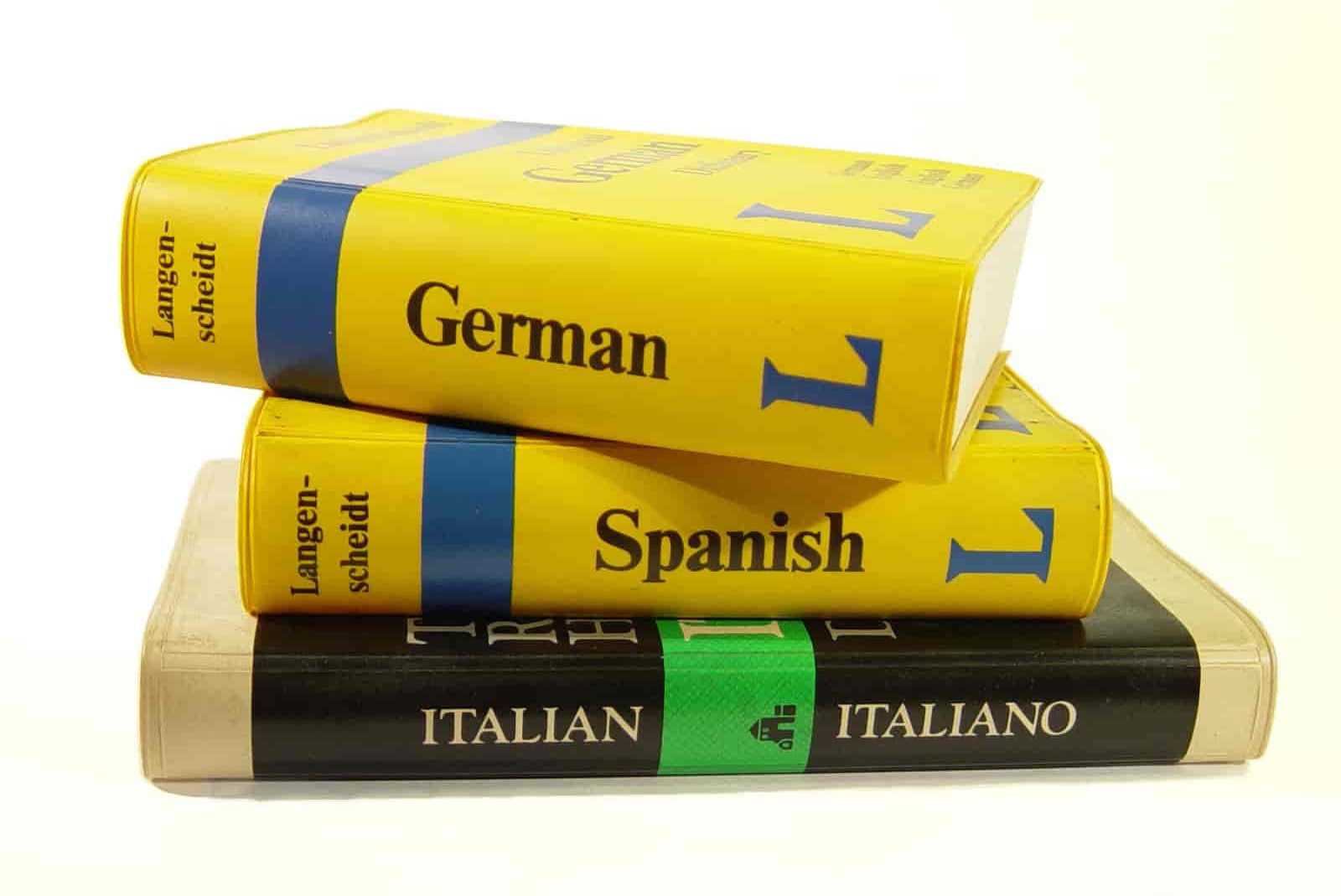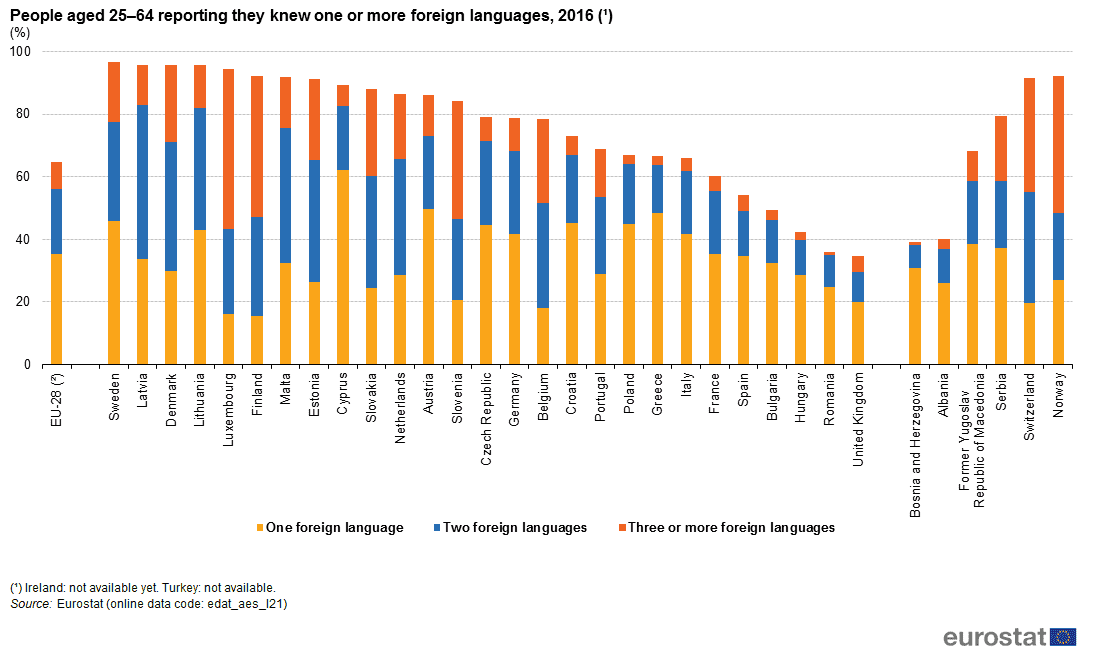
Parlez-vous français ? Sprechen Sie Deutsch ? ¿Habla español? Of course you don’t- you’re English!
Predictable from a linguist, I know. But hear me out. Think about the last time you went abroad on holiday, how many people did you encounter that couldn’t or wouldn’t speak English to you? Probably not very many. It’s a common joke that when British people go abroad that their solution to a language barrier is to speak English slowly and loudly. It feels as though it’s gotten to the point that Europeans have grown so sick of this that they speak English to you before you even speak to them first, as if they can smell the arrogance on us.
But why have the standards for native English speakers dropped so low? How is it that a single word in a foreign language is such an achievement for us?
My mum and I took a week long holiday to Marseille in the south of France last summer. With Mum being a French teacher and me being a Modern Languages student, we went with the intention of speaking as little English to the locals as possible. Their reaction to this was eye-opening. Being greeted at the airport by the taxi driver, I put on my best French accent to say ‘merci’ when he kindly carried my suitcase for me. You would not believe how shocked and impressed he was that an English person had not only uttered a word of his own language but actually made an effort to say it properly. A. Single. Word. And he was impressed. A similar experience occurred when we were panic-buying a hat to save my pitifully burnt scalp (another thing that the Brits never seem to learn) and Mum used her best French accent to say ‘bonjour’ to the sales assistant. He immediately began speaking French to her and when mum then said something in English to me, his face was a picture; ‘I thought you were French, you said bonjour in the Frenchiest way!’. Mum still brags about her ‘Frenchiest’ bonjour. But why have the standards for native English speakers dropped so low? How is it that a single word in a foreign language is such an achievement for us?

Less than 40% of 25-64 year olds in the UK report foreign language knowledge with more than half of this being knowledge of just one foreign language (see graph). The lowest in Europe. Most other European countries almost double this foreign language knowledge and the average is approximately 60% in the EU. It is important to consider that this statistic is not perfect as it is based on self-assessment of one’s own linguistic abilities. But what it does suggest is that in this country we are not confident in the languages department and there are many explanations for this. Firstly, English is the language of popular culture in music, television, film and social media. In many countries where English is not the native language, the arts industry is not as well funded as it is in the UK and US and thus cannot compete with English-speaking media. Additionally, the main social media and internet platforms were launched in the US, meaning that the current slang is almost always in English. As any language learner will know, immersion is one of the most effective techniques to become fluent so it’s no surprise that Europeans, who are surrounded by this English media, appear practically fluent when you converse with them. In a way, learning English is a no-brainer and a useful skill for non-English speakers in the modern day. The downside of this is that it has been made so easy for native English speakers that we have become lazy and arrogant because ‘why should I? Everyone speaks English’
It is true- you will encounter very good English in most places, especially tourist hotspots. Nelson Mandela has been (slightly mis)quoted saying ‘If you talk to a man in a language he understands, that goes to his head. If you talk to him in his own language, that goes to his heart.’ One of my personal motivations for studying languages (aside from the fact that being able to say I’m trilingual is pretty cool) is that it’s simply the polite thing to do in my opinion. I’ve heard so many Brits complain that people come to the UK and don’t try to assimilate with our culture or bother to learn English. Yet many of these are the same people who go on holiday and would rather waste their time speaking English loudly and slowly than spend half an hour refreshing their GCSE French. Languages aren’t everyone’s forte but an openness to them and learning a few words to be polite would be extremely refreshing.
There has been some speculation over how willing EU member states will be to speak English in the near future as opposed to another major European language. I’m no expert in politics but I don’t think we’re exactly flavour of the month in Europe so I’ll let you come to your own conclusions on that one. In the words of former West German Chancellor, Willy Brandt: ‘If I am selling to you, I speak your language. If I am buying dann müssen sie Deutsch sprechen.’ If this still represents the attitude in Europe, then it is imperative that our linguistic abilities improve.
language learning and teaching is simply not a priority in our education system or of our young people
The problem? The UK supply of linguists can nowhere near satisfy this demand. Many of my course mates have told me that they were the only one in their French, Spanish or German classes in sixth form. Aside from that sounding unbelievably awkward, it reveals a frustrating truth that quality language learning and teaching is simply not a priority in our education system or of our young people. According to a BBC survey of 2048 secondary schools in 2019, most said that many are reluctant to take a modern foreign language at GCSE due to students’ perception that languages are difficult subjects. Perhaps to boost linguistic confidence it became compulsory in 2014 (finally!) for primary school children to learn a modern or ancient language from Year 3 onwards. Unfortunately, this has not been the success it had the potential to be. Since languages have proved consistently unpopular at GCSE, with less than half of GCSE students in 2007 studying one, primary teachers are expected to teach something that they themselves may have little to no education in. The result is primary school teachers who massively underestimate the abilities of young children due to the teachers’ own lack of linguistic confidence. A 2019 article by The Guardian goes into more detail on this but, in short, many primary schools have been unable to fund quality language training for their teachers and rely on funding from the governments of the countries where these languages are spoken.
The pandemic has provided a glimmer of hope for our linguistic abilities. Whilst stuck at home in quarantine, many of us have turned to language learning in an attempt to fill the time productively. In March this year, Duolingo reported a 148% increase in new users in the US and the German media platform Deutsche Welle saw an increase of over 100% in visits to their site’s German language learning pages between January and April 2020. These kinds of resources can’t promise the fluency that comes from a formal education but what they can do is give people the confidence to embrace multilingualism. So, if language learning was your quarantine activity of choice, step outside of your comfort zone and say a few words to a local in their native language when you next get to go abroad. Who knows? You too might say bonjour ‘in the Frenchiest way’!
